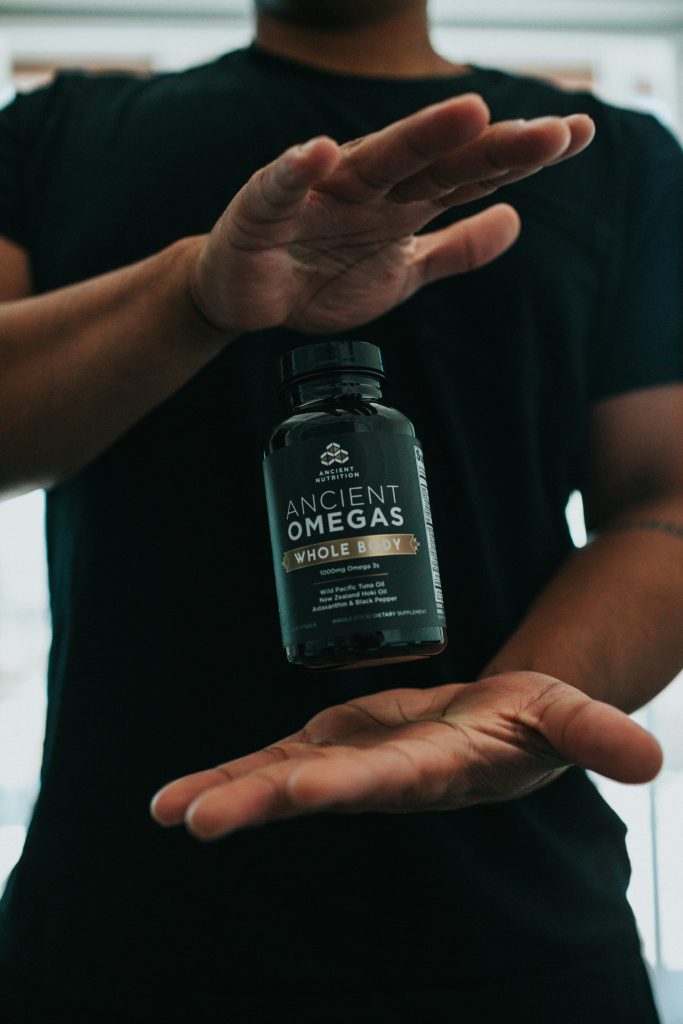Ad Blocker Detected
Our website is made possible by displaying online advertisements to our visitors. Please consider supporting us by disabling your ad blocker.
Hey there! Have you ever wondered about the benefits of folate supplements? Well, look no further! In this article, we’ll explore the wonderful world of folate supplements and how they can support your overall health. Whether you’re a mom-to-be looking to support your baby’s development or simply seeking to boost your energy levels, folate supplements might just be the answer you’ve been searching for. So, let’s jump right in and discover the incredible benefits that these tiny supplements can bring to your life!

This image is property of images.unsplash.com.
What is Folate?
Folate is a B-vitamin that plays a vital role in various processes in the body. It is essential for proper cell division, DNA synthesis, and red blood cell formation. Folate is also necessary for the production of serotonin, which is a neurotransmitter that regulates mood. In addition, it helps convert homocysteine, an amino acid, into methionine, another amino acid that is essential for protein synthesis.
Definition of Folate
Folate, also known as vitamin B9, is a water-soluble vitamin that exists in several forms, including folic acid, which is the synthetic form found in supplements and fortified foods. Natural forms of folate are found in a variety of foods, especially leafy green vegetables, legumes, and citrus fruits. The body needs folate to produce DNA and RNA, the building blocks of genetic material. Folate is necessary for the proper growth and development of cells, tissues, and organs.
Importance of Folate in the Body
Folate is essential for everyone, regardless of age or gender. It plays a crucial role in many bodily functions and is involved in the synthesis of DNA, which is necessary for cell division and growth. Folate is particularly important for pregnant women as it contributes to the development of the neural tube in the early stages of pregnancy. It also helps prevent certain birth defects, such as spina bifida and anencephaly. Folate is also important for cognitive function, heart health, and the prevention of certain chronic diseases.
Sources of Folate
Natural Food Sources of Folate
Folate is naturally found in a wide range of foods, with some of the highest concentrations found in leafy green vegetables, such as spinach, kale, and broccoli. Other good sources include legumes, such as lentils and chickpeas, as well as citrus fruits, avocados, and bananas.
Fortified Food Sources of Folate
In addition to natural food sources, folate can also be found in fortified foods. Many grain products, such as bread, pasta, and rice, are fortified with folic acid. Breakfast cereals and some fruit juices also often contain added folate. These fortified foods can help individuals meet their daily folate requirements, particularly when natural food sources are limited.

This image is property of images.unsplash.com.
Benefits of Folate Supplements
Preventing Birth Defects
One of the most well-known benefits of folate supplements is their role in preventing neural tube defects in babies. Adequate folate intake before and during pregnancy can significantly reduce the risk of spina bifida, anencephaly, and other neural tube defects. It is recommended that women of childbearing age take a daily folate supplement, even if they are not currently trying to conceive, as many pregnancies are unplanned.
Health Benefits for Pregnant Women
In addition to preventing birth defects, folate supplements offer a range of health benefits for pregnant women. Folate plays a crucial role in the formation of red and white blood cells, and it contributes to the growth and development of the placenta. It also helps prevent anemia, a common condition in pregnancy. Adequate folate levels can reduce the risk of premature birth, low birth weight, and preeclampsia.
Reducing the Risk of Stroke
Folate has been associated with a reduced risk of stroke, especially in individuals with high blood pressure. Studies have shown that folate supplementation can help lower blood pressure and improve blood vessel function, reducing the risk of stroke. However, it is important to note that folate supplements should only be taken under the guidance of a healthcare professional, as other factors such as lifestyle and medication use can also impact stroke risk.
Supporting Heart Health
Folate plays a crucial role in maintaining heart health. It helps regulate homocysteine levels in the blood, an amino acid that, when elevated, has been linked to an increased risk of cardiovascular disease. Adequate folate intake can lower homocysteine levels and reduce the risk of heart disease. Additionally, folate is involved in the production of red blood cells, which carry oxygen to the heart and other organs. Proper oxygenation is essential for optimal heart function.
Recommended Dosage of Folate Supplements
Daily Recommended Intake
The daily recommended intake of folate varies depending on age, sex, and life stage. For most adults, including pregnant women, the recommended daily intake is 400 to 600 micrograms (mcg) of dietary folate equivalents (DFEs). It is important to note that DFEs take into account the differences in absorption between folate naturally present in food and synthetic folic acid.
Specific Dosage for Different Population Groups
Certain population groups may have different folate requirements. Pregnant women, for example, are recommended to increase their intake to 600 to 800 mcg DFEs per day. Women who are planning to become pregnant are also advised to take a daily supplement containing 400 to 800 mcg of folic acid. Individuals with certain medical conditions, such as malabsorption disorders or a history of neural tube defects, may require higher doses under the guidance of a healthcare professional.

This image is property of images.unsplash.com.
Risks and Side Effects of Folate Supplements
Possible Interactions with Medications
Folate supplements can interact with certain medications, including anticonvulsants, cholesterol-lowering drugs, and methotrexate, a medication used for autoimmune disorders and cancer treatment. These interactions can affect the effectiveness or safety of both the medication and the folate supplement. It is important to consult with a healthcare professional before starting any new supplements, especially if you are currently taking medication.
Potential Side Effects
When taken as directed, folate supplements are generally safe and well-tolerated. However, some individuals may experience side effects, particularly at high doses. These side effects can include nausea, loss of appetite, bloating, and digestive disturbances. In rare cases, allergic reactions to folic acid supplements may occur, but they are relatively uncommon.
Concerns for People with Certain Medical Conditions
Individuals with certain medical conditions, such as epilepsy or kidney disease, should exercise caution when taking folate supplements. It is advisable to consult with a healthcare professional to determine the appropriate dosage and monitor for any potential side effects or interactions. Additionally, individuals with a history of cancer should consult with their healthcare provider, as high doses of folic acid may stimulate the growth of existing tumors.
Who Should Consider Taking Folate Supplements?
Pregnant Women
Folate supplements are highly recommended for pregnant women to reduce the risk of neural tube defects and support the healthy development of their babies. Ideally, women should start taking a folic acid supplement before conception and continue throughout pregnancy and breastfeeding.
Women Planning to Become Pregnant
Women who are planning to become pregnant are also advised to take a daily folic acid supplement. Since neural tube defects can occur in the early weeks of pregnancy, often before a woman may even know she is pregnant, it is important to maintain adequate folate levels prior to conception.
People with Malabsorption Issues
Individuals with malabsorption issues, such as those with certain gastrointestinal disorders or those who have undergone gastric bypass surgery, may have difficulty absorbing sufficient folate from food alone. In these cases, folate supplements may be necessary to ensure adequate levels of this essential nutrient.
Vegetarians and Vegans
Vegetarians and vegans may be at a higher risk of folate deficiency due to the limited dietary sources of this nutrient. Plant-based sources of folate, such as leafy greens and legumes, are generally not as concentrated as animal sources. Therefore, folate supplementation can be beneficial for individuals following a vegetarian or vegan diet.
Individuals with Folate Deficiency
Individuals with diagnosed folate deficiency or those at risk of deficiency due to certain medical conditions may need to take folate supplements. This includes individuals with malabsorption disorders, chronic alcoholism, or a history of gastrointestinal surgery.
Choosing the Right Folate Supplement
Different Forms of Folate Supplements
Folate supplements are available in various forms, including folic acid, methylfolate, and folinic acid. Folic acid is the most common and affordable form of folate supplement, while methylfolate is the active form that the body can readily use. Folinic acid is another active form that is often used in specific medical conditions. Choosing the right form of folate supplement depends on individual needs and preferences.
Check for Quality Assurance and Third-Party Testing
When selecting a folate supplement, it is important to choose products from reputable brands that undergo quality assurance testing. Look for supplements that have been third-party tested for potency and purity to ensure that you are getting a high-quality product that meets safety and efficacy standards.
Considerations for Vegetarians and Vegans
Vegetarians and vegans should look for folate supplements that are labeled as suitable for their dietary preferences. Some supplements may contain animal-derived ingredients or be encapsulated in gelatin capsules, which are not suitable for vegetarian or vegan diets. Ensure that the supplement is labeled as vegan or vegetarian-friendly to align with your dietary choices.
How to Take Folate Supplements
General Guidelines for Consumption
Folate supplements are typically taken orally in the form of capsules or tablets. They can be taken with or without food, depending on personal preference and tolerability. To maximize absorption, it is recommended to take folate supplements alongside a balanced meal that includes healthy fats and protein. This can help enhance the absorption of fat-soluble nutrients.
Timing of Consumption
There is no specific best time of day to take folate supplements, so it can be incorporated into your daily routine at a time that is convenient for you. Some individuals prefer taking it in the morning with breakfast, while others find it easier to remember to take it in the evening. Consistency is key, so choose a time that works best for you and stick to it.
Combining Folate with Other Nutrients
Folate works synergistically with other nutrients to support overall health. It is often recommended to take folate along with other B-vitamins, such as vitamin B12 and vitamin B6, as they work together in various biochemical processes in the body. Additionally, folate is more efficiently absorbed when consumed alongside foods that contain vitamin C.
Interactions and Contradictions
Interactions with Other Nutrients
Folate may interact with other nutrients, particularly vitamin B12. High levels of folate can mask a vitamin B12 deficiency, so it is important to maintain adequate levels of both vitamins. If you are taking a folate supplement, it is advisable to also ensure sufficient intake of vitamin B12 from natural food sources or consider a B-complex supplement to maintain the balance.
Possible Contradictions with Medications
Folate supplements can interact with certain medications, especially anticonvulsants, cholesterol-lowering drugs, and methotrexate. The effectiveness or safety of these medications may be impacted by the interaction with folate. It is important to inform your healthcare professional about any medications or supplements you are taking to ensure appropriate adjustments are made.
Are Folate Supplements Considered Essential for Women’s Health?
Yes, folate supplements are considered essential for women’s health, especially during pregnancy. Folate is one of the best vitamin supplements women can take to prevent birth defects and support overall health. It is important for women to maintain adequate folate levels for their well-being and the health of their unborn babies.
Conclusion
Folate supplements, also known as vitamin B9, offer a range of health benefits for individuals of all ages. From preventing birth defects and supporting heart health to reducing the risk of stroke, folate plays a crucial role in various bodily functions. Pregnant women, women planning to become pregnant, individuals with malabsorption issues, vegetarians, and vegans, as well as those with folate deficiency, should consider taking folate supplements to ensure adequate intake. When choosing a supplement, opt for reputable brands that undergo quality assurance testing and consider the right form of folate that aligns with your needs. Remember to consult with a healthcare professional before starting any new supplements, especially if you have any underlying medical conditions or are taking medications. With the proper dosage and guidance, folate supplements can be a valuable addition to supporting overall health and well-being.


